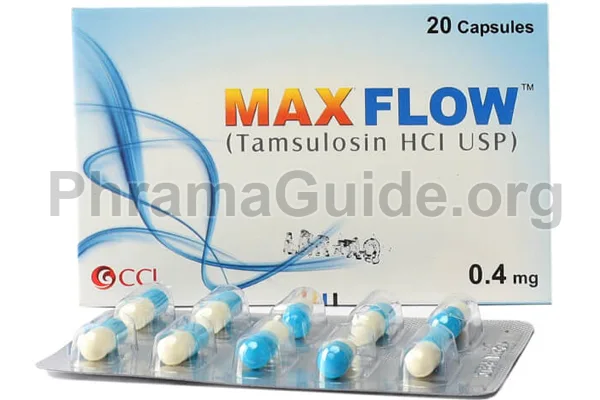Maxflow can have side effects, it’s important to note that not everyone will experience these side effects, and some individuals may experience effects that are not listed. Here are some common side effects associated with Maxflow.
Common Side Effects
- Dizziness or lightheadedness: Maxflow can cause a drop in blood pressure, leading to dizziness or lightheadedness, especially when standing up from a sitting or lying position.
- Fatigue: Some people may feel tired or lethargic while taking Maxflow.
- Headache: Headaches are a common side effect of many medications, including Maxflow.
- Retrograde ejaculation: Maxflow can cause semen to go into the bladder instead of out of the penis during ejaculation. This is known as retrograde ejaculation and is generally not harmful but can affect fertility.
- Runny or stuffy nose: Maxflow may cause nasal congestion or a runny nose.
- Abnormal ejaculation: Apart from retrograde ejaculation, some individuals may experience other changes in ejaculation, such as decreased semen volume or difficulty ejaculation.
- Orthostatic hypotension: Maxflow can cause a sudden drop in blood pressure when standing up, leading to feelings of dizziness or fainting.
- Infection: Some individuals may experience urinary tract infections while taking Maxflow.
Less Common Side Effects
- Priapism: This is a prolonged and painful erection to Maxflow can occur but is rare.
- Hypersensitivity reactions: Some individuals may develop allergic reactions to Maxflow, leading to symptoms such as rash, itching, swelling, severe dizziness, or difficulty breathing.
- Irregular heartbeat (palpitations): Maxflow may cause palpitations or an irregular heartbeat in some individuals.
- Vision changes: While uncommon, some people may experience changes in vision or blurred vision with Maxflow.
- Back pain: Back pain has been reported by some individuals taking Maxflow.
- Gastrointestinal effects: Less commonly, Maxflow may cause stomach pain, nausea, vomiting, or diarrhea.
- Peripheral edema: Swelling of the extremities with Maxflow, such as the hands and feet, can occur in some individuals.
- Flu-like symptoms: Rarely, Maxflow may cause symptoms resembling the flu, such as fever, chills, and body aches.

What is Maxflow?
Maxflow is one of the leading brands of Tamsulosin, manufactured and marketed by Consolidated Chemical Laboratories (Pvt) Ltd, Pakistan.
Maxflow : Available Formulations and Strengths
Presently, Maxflow is available in Capsule Form.
Maxflow Capsule : 0.4mg strength
What Are The Possible Drug Interactions of Maxflow?
- Alpha-blockers and other antihypertensive drugs: Combining Maxflow with other medications that lower blood pressure, such as other alpha-blockers or antihypertensive drugs, may result in an additive effect on blood pressure. This could lead to dizziness, lightheadedness, or fainting.
- Phosphodiesterase-5 (PDE5) inhibitors: Maxflow may enhance the blood pressure-lowering effects of PDE5 inhibitors like sildenafil (Viagra), tadalafil (Cialis), or vardenafil (Levitra). Combining these medications can increase the risk of hypotension (low blood pressure).
- Cimetidine: Cimetidine, a medication used to treat conditions like heartburn and ulcers, may increase the levels of Maxflow in the blood, potentially leading to an increased risk of side effects.
- Antifungal medications: Some azole antifungal medications, such as ketoconazole and itraconazole, may increase the levels of Maxflow in the blood, potentially leading to an increased risk of side effects.
- Certain antibiotics: Erythromycin and clarithromycin, among other antibiotics, may interact with Maxflow and increase its blood levels, potentially leading to an increased risk of side effects.
- Other alpha-adrenergic blockers: Combining Maxflow with other alpha-adrenergic blockers, such as doxazosin or terazosin, may increase the risk of hypotension and dizziness

Leave A Comment